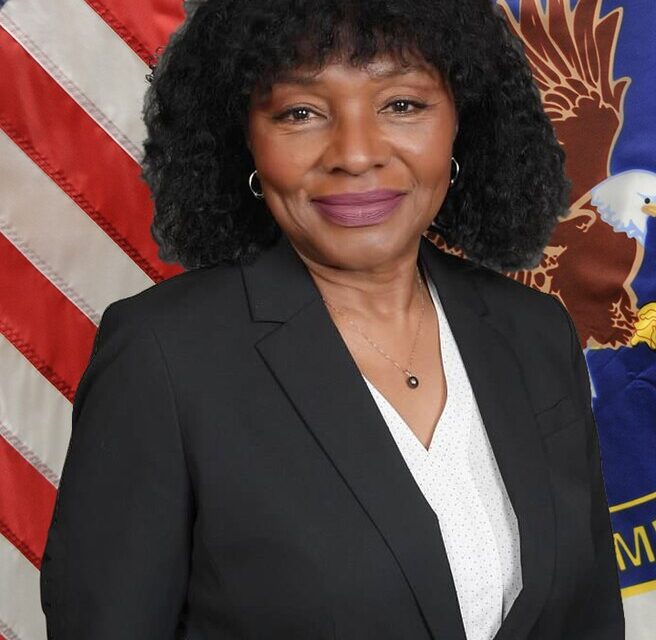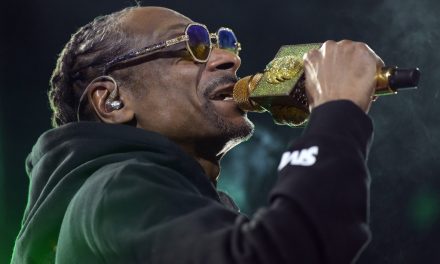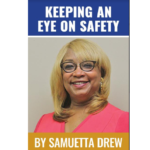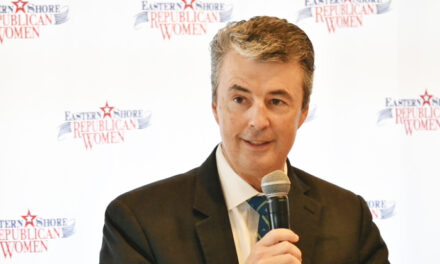By Aria Brent,
AFRO Staff Writer,
abrent@afro.com
Col. (Ret.) Edna W. Cummings comes from a family with a history of serving in our nation’s military. Having initially joined the armed forces as a challenge to herself, Cummings courageously overcame every obstacle she faced while serving, including ones that were based on her race and gender. Ahead of the Nov. 7 AFRO event, titled “Salute to Our Veterans,” Cummings spoke one-on-one with the AFRO about her experiences in the Army, the significant contributions Black women have made to the military and what we can do to continue to honor our Black veterans.
She is one of three honorees set to be recognized at the AFRO’s upcoming event, being an Army Reserve Ambassador for the state of Maryland, a Six-Triple Eight Congressional Gold Medal Champion and an Army Women’s Foundation hall of fame honoree.
AFRO: Can you tell me about the position you held when you served in the U.S. military?
EC: I served in the army for approximately 25 – almost 26 years. My last assignment was at USNorthcom NORAD in Colorado Springs. I retired in 2003. I joined in 1978– I didn’t start off as a colonel. I received my commission as an officer at Appalachian State University. I was in the Army ROTC program and I started out as a logistics officer trained at Fort Greg Adams, what was formerly called Fort Lee, Va. I did my training there. I served as a logistics officer, initially.
AFRO: What made you want to join the military ?
EC : I joined the military because I consider it my “family business.” My father served and I grew up on military installations and around military installations in the Fayetteville and Fort Bragg area of North Carolina, now it’s Fort Liberty. I was impressed by the confidence of some of the women I saw, who were serving. I was impressed by the confidence, and then the opportunities that the army afforded for travel, education, skills, training and just to do something different. During that time a lot of women were not in the military and it was such a unique opportunity. I just want to see if I could join the ranks and meet the requirements and serve. It was such a unique opportunity. I wanted to join the ranks myself to travel and for education, job opportunities and skills training–a lot of reasons. It’s an impressive profession.
AFRO: Can you tell me about what are some of the challenges you faced throughout your career ?
EC : Well, there were several challenges. One, initially, was gender.
That was a challenge because when I joined the Army, it was still the Women’s Army Corps and the Women’s Army Corps was not disbanded until October 1978– I joined in May.
When I was undergoing training in Army ROTC, we were still under the umbrella of the Women’s Army Corps although we trained with men. That was an issue– that we were still separate and not quite equal. Above everything else, that was the biggest challenge and then just understanding the culture of the military at the time because it’s a profession of arms; Understanding what’s required to serve in the armed forces. I witnessed it as a family member – not in the ranks.
I moved a lot and I had a family, so the constant moving every two to three years, that kind of destabilizes the family sometimes. We were trying to hold the family together while we were moving and of course, the obvious issue of race. That was interesting, because not only was I a female, I was a Black female and those were very, very rare at the time. When I joined, some of the other troops had never seen a Black female officer. I remember, one of my soldiers saying, ‘I didn’t know they made y’all.’
We were really unique and an anomaly at the time.
AFRO: Can you tell me about some of the contributions that Black women have made to the U.S. military ?
EC: I’lI just start out with Harriet Tubman.
She was never acknowledged as being in the military formally, but she conducted military operations during the Civil War, paving the way for enslaved people to gain their freedom. That’s a contribution that–to me– that is most recognizable, but has never fully been honored as such. Harriet Tubman wasn’t formally in the ranks, but she performed in the capacity, in my opinion, as a military officer.
After the Civil War, we have Black women who’ve always served in the military. They served during the Vietnam War as nurses and as non-nurses as well. Then you have Black women who served in the Korean War, and who served in World War II. Most notably, women of the Six-Triple Eight served during World War Two. There were more than 7,000 Black women who served. The women of Six Triple-Eight are the most recognizable and the most celebrated of the Black women who served because they restored the mail system in Europe for the military.
Black women are interesting, they’ve never been drafted, they’ve always volunteered to serve and that’s the biggest contribution. Hundreds of thousands of Black women have served our nation.
AFRO: What would you like to see happen for Black people who are serving in the military?
EC: Ideally, not only for the people who serve, but just for the nation as a whole, we need access to opportunities–unrestricted access for those who are seeking the opportunity. We need to eliminate those barriers to service– although they are eliminated on paper, they’re still prevalent throughout society. There’s still microaggressions, and you know, discrimination that occurs. In a perfect society, that would be eliminated for which it occurs now. I’d like for it to be consistent.
AFRO: How can we continue to honor our Black veterans year round, but especially on this upcoming Veterans Day ?
EC: I think it’s just respect. The best way you can honor anyone is to respect them for who they are, and not for benign features such as skin color.
So many times there are minorities present and instant stereotypes occur. We can eliminate those stereotypes and accept people– especially African Americans– for who they are and what they contribute; not by imposing these artificial barriers to service.
This year, we celebrate the 75th anniversary of the desegregation of the armed forces and also the integration of women into the forces. It wasn’t until 1948 that women were allowed to serve in the armed forces and it was fully integrated into law. It took women and African Americans, stepping up in World War II, for us to have barriers come down and we’re still implementing policies to give unrestricted access.
This article has been edited for clarity.
The post Retired Col. Edna W. Cummings speaks on military service of Black women appeared first on AFRO American Newspapers .











